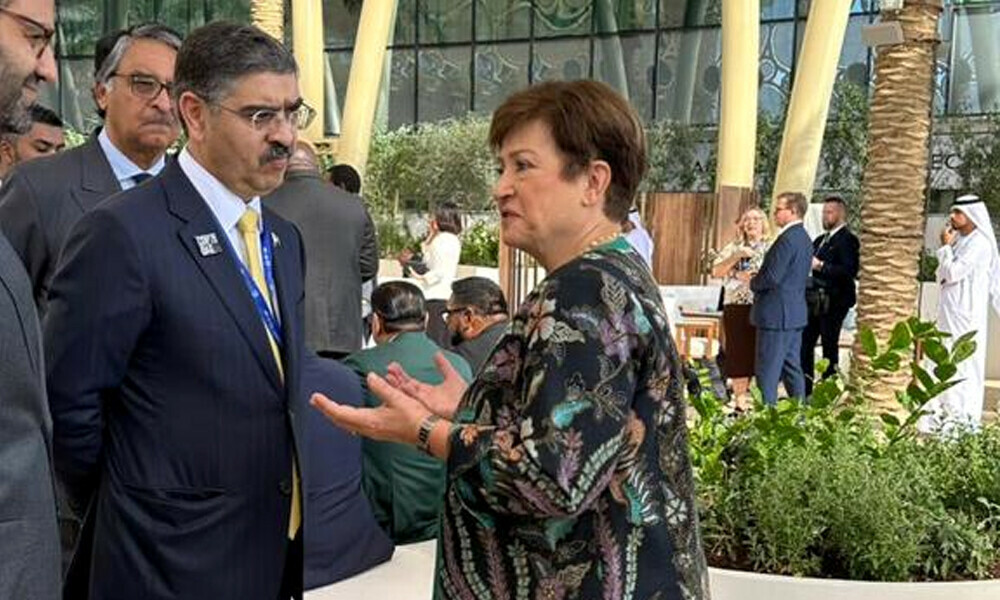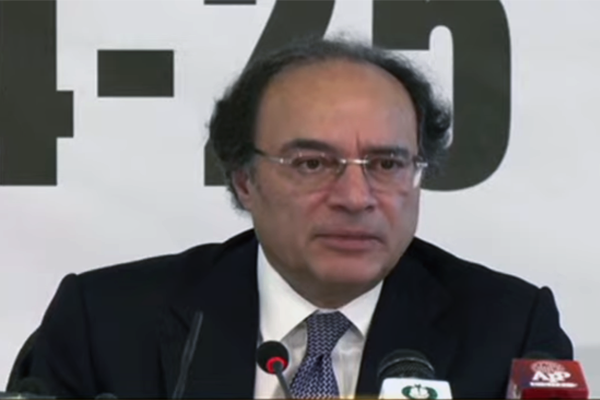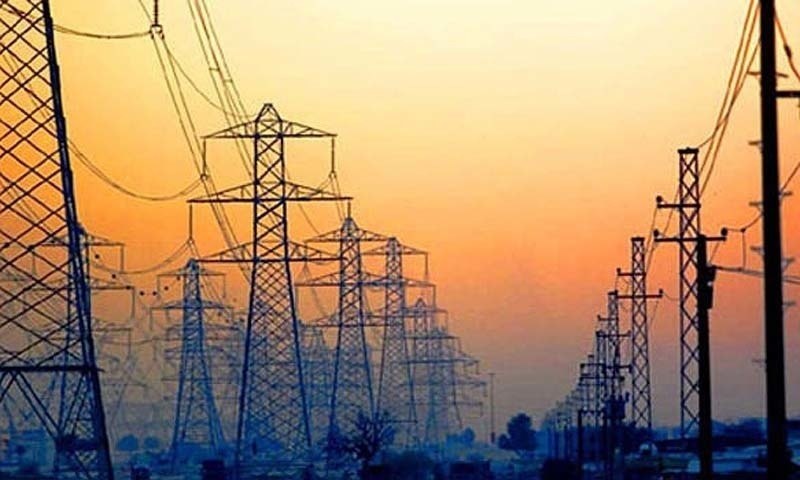Managing Director of the International Monetary Fund (IMF), Kristalina Georgieva, praised the Pakistani government for its commitment to “maintaining economic stability and timely implementation of reforms.” The acknowledgment came during an informal interaction between Georgieva and Caretaker Prime Minister Anwaar-ul-Haq Kakar at the COP28 summit.
In a post on the social media platform X (formerly Twitter), Georgieva shared insights from the meeting, stating, “We discussed commendable progress made by the government to maintain economic stability and timely implementation of planned reforms.”
The remarks highlight the ongoing efforts of the caretaker government in Pakistan, operating within the framework of an IMF program signed in July. The Stand-By Arrangement (SBA) program, amounting to $3 billion, provided vital financial support to Pakistan, with the first tranche of $1.2 billion disbursed in July.
The SBA agreement not only eased concerns of default but also opened doors for inflows from various multilateral and bilateral partners, including Saudi Arabia, UAE, and the World Bank. This influx contributed significantly to stabilizing Pakistan’s foreign exchange reserves.
In recent developments, the IMF staff and Pakistani authorities reached a staff-level agreement on the first review of the SBA program. The government anticipates approval from the IMF’s executive board in December, reinforcing its commitment to the program.
Kristalina Georgieva, while discussing Pakistan’s economic challenges, pointed out the lower tax collection as a major issue, emphasizing the need to increase the tax-to-GDP ratio from the current 12% to at least 15%. She commended the Pakistani authorities and the Caretaker Finance Minister for adhering to the IMF program amid challenging circumstances.
The IMF’s ongoing support and positive feedback underscore the importance of sustained economic reforms and fiscal discipline for Pakistan’s long-term stability.




